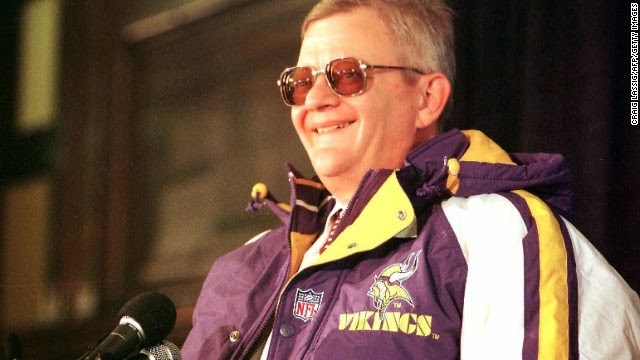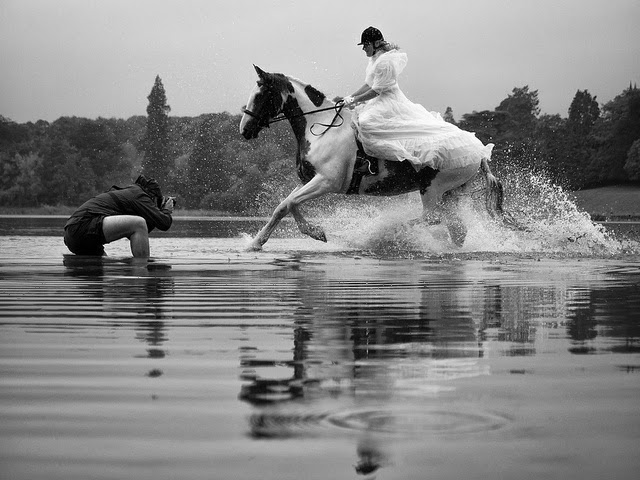Writing and the Natural Born Storyteller
When I was young I had terrifying dreams, dreams in which witches chased me, hoping to stick their boney fingers into my back. I had nightmares every single night.
Being pursued by witches and ghouls may not seem terrifying to an adult, but as a child I was so scared I couldn't sleep. I would lie awake in bed for hours. Finally, my father would come into my bedroom at two or three in the morning to check on me. Finding me awake he'd sit on the edge of my bed and ask, "Would you like to hear a story?"
That was like asking a kid if they liked Christmas.
"Yes!" I'd say, and he would tell me a story. Since I was paying attention to the story rather than the parcel-load of monsters lying in wait for me in dreamland, I drifted off in minutes. Seconds.
That began a practice my father kept up until I became a teenager. Every night, after I brushed my teeth and climbed into bed, my father would tell me a story. Sometimes the story was about his life on his parents' farm, sometimes it was about the adventures he had when he travelled to the big city to find work. Sometimes he made up the story completely and we ventured into the lands of fairy. Whatever kind of story he told, I loved it and always asked for one thing: another story!
All of that, everything I've said, has been to mosey up to this point: my father was a natural-born storyteller. He never read a single book on how to tell a story but he was a master of the form.
When I was a kid, the love I had for my father bordered on hero worship. I loved Mom too but Dad had a certain charisma. He was a dreamer. Sometimes, before he told me a story, we would daydream together and try to devise a perpetual motion machine or talk about how, one day, each person would have their own jetpack. Because of this, I still get a special thrill whenever something crosses over from science fiction to science fact, though I don't suppose I'll ever have a jetpack. (But I do have something that looks very close to Captain Picard's tablet. I don't think the thrill of owning a tablet is ever going to wear off. At least, I hope not.)
Given all this, it should come as no surprise when I tell you that I wanted to be just like my father, and one of the ways in which I wanted to be like him the most was storytelling. I wanted to be able to tell stories too, but not just any old stories. I wanted to tell interesting stories, stories that amazed, stories that astounded. Stories that would take people's minds off their problems and make life--living--easier.
I soon learnt that storytelling isn't for the faint of heart. My first story was a complete disaster.
I'd been in kindergarten about a week. My father--tired from a long, hard, days work--had finished telling me my bedtime story and was looking forward to watching the news and, later, reading the newspaper. In the evening, after I'd been tucked into bed, he and my mother would sit at the kitchen table, sipping cups of sweet milky tea. Many a night I lay in bed and wished I could contribute to the soft chatter of their conversation.
This night, as Dad got up from my bed, I reached out and grabbed his tanned hand and said, "Don't leave! Now I'm going to tell you a story!" In my mind, as I replay this scene, I'm in a flannel nightgown, buttoned up to the neck, grinning impishly.
Dad looked through my doorway, into the living room, at his comfy reading chair like a drowning man looks at a lifeboat just out of reach. Then he sighed and, slowly, sat back down on my bed and nodded for me to begin.
And I did. My story went something like this:
Mom walked me to school and then I saw Pam and Michelle and then we went inside and then our teacher ... that's Mrs. Drubs ... told us to draw our favorite animal and then we had recess and then I fell down and had to get a Band-Aid and then ...You get the idea.
At about that point in my 'story' my dad cut in with, "That's very nice dear," kissed me on top of the head, and made a beeline for his reading chair.
Even as a kid I knew my story sucked. Sure, it was my first story and I was four, but a desire was born in me that day. Sounds dramatic, doesn't it? But I'm being serious. From that day to this I've wanted to be able to tell an engaging tale.
If, one day, I'm able to write a bestseller ... well, that'd be great. But, being honest, that's not why I've read almost every book on writing I've been able to get my hands on. I read about what makes a great story because I want to be able to tell spellbinding stories, just like my Dad did.
That's my focus: storytelling. Evoking emotion. Producing narrative drive. Keeping people up past their bedtimes, not because they're scared of the monsters waiting for them on the other side, but because they have to read just one more page ...
Why I'm Writing A Book On Writing
I've told you all of this for a reason. I'm writing a book. A book on writing.
There are lots of books on writing, books written by people brighter than me, better writers than me. In fact, for the past few days, with my publishing deadlines looming ever closer, I've been asking myself: What does my book have to offer? There are so many wonderful books on how to write, why not just recommend those?
I've been thinking about something Neil Gaiman said:
“Start telling the stories that only you can tell, because there’ll always be better writers than you and there’ll always be smarter writers than you. There will always be people who are much better at doing this or doing that - but you are the only you.Here's what I took away from this: there's no one who can write a book on writing, one with my unique perspective on the subject, like I can. Why? Because each of us has our own voice. Our own story to tell. It's just that, in my case, that story is about stories.
"Tarantino - you can criticize everything that Quentin does - but nobody writes Tarantino stuff like Tarantino. He is the best Tarantino writer there is, and that was actually the thing that people responded to - they’re going ‘this is an individual writing with his own point of view’.
"There are better writers than me out there, there are smarter writers, there are people who can plot better - there are all those kinds of things, but there’s nobody who can write a Neil Gaiman story like I can.”
From before I could read I loved stories and that grew into a desire to learn the craft of storytelling. And there IS a craft of storytelling; there are no hard-and-fast rules, but there are guidelines.
Finding these guidelines has been a journey, an adventure, and it's far from complete. That said, with this upcoming book, I'm going to share a little of what I've learnt in the hope it will help others who are on the same path I am, those who want to create stories that entertain.
Photo credit: "Crested Butte Biking" by Zach Dischner under Creative Commons Attribution 2.0.










